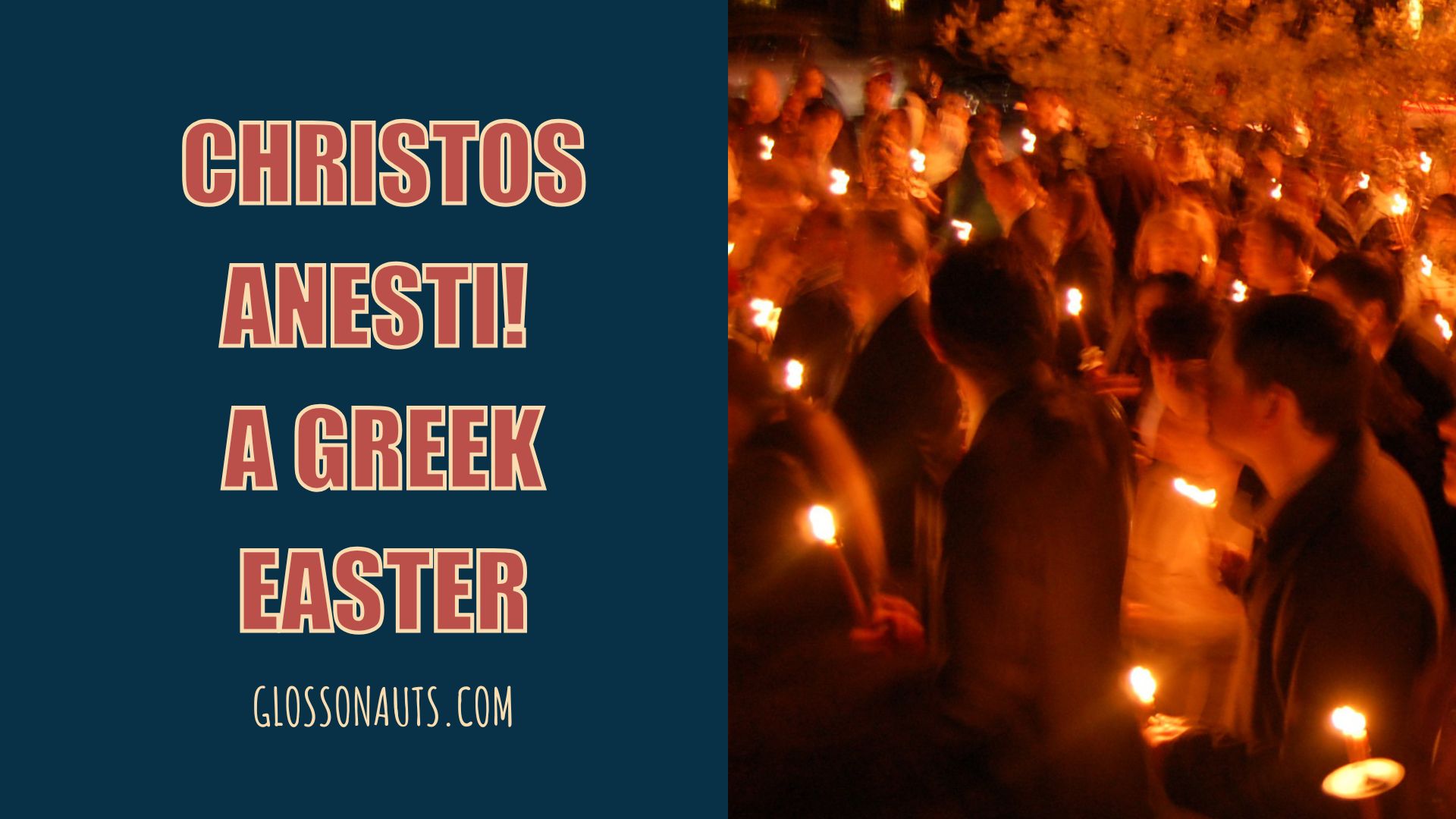
In Greece, everyone gets excited in the week before Easter, which is called Pascha (Πάσχα). It’s more than just a church holiday. It’s a big part of our culture, full of old traditions, deep feelings, and happy celebrations that make a week you’ll never forget.
Greek Easter is different from Easter in other Western countries because we follow a different calendar. This means our Easter often happens later. It makes our celebration special and Greek. The whole week before Easter, called Megali Evdomada (Μεγάλη Εβδομάδα).
PAlm sunday (Kyriaki ton Vaion)
The week starts with Palm Sunday (Kyriaki ton Vaion – Κυριακή των Βαΐων). This is the day when Jesus came into Jerusalem. You’ll see people holding small crosses made from bay leaves that have been blessed in church. These crosses mean victory and peace.
Holy Thursday (Megali Pempti)
In the morning, there’s a special church service that remembers the Last Supper. In the evening, there’s a moving service, where people think about Jesus being crucified. In many churches, they also wash people’s feet, which shows being humble and helping others. It’s also the day Greeks traditionally dye eggs red (kokkina avga – κόκκινα αυγά). The red color stands for Jesus’s blood, and the egg means new life.
Holy Friday (Megali Paraskevi)
The church bells ring slowly all day, and flags are flown halfway down. The Epitaphios (Επιτάφιος), which represents the tomb of Jesus after he died, is decorated with flowers by people who go to church. In the evening, there’s a very moving walk with the Epitaphios through the streets of towns and villages. People hold candles and it’s a very spiritual experience that brings everyone together.
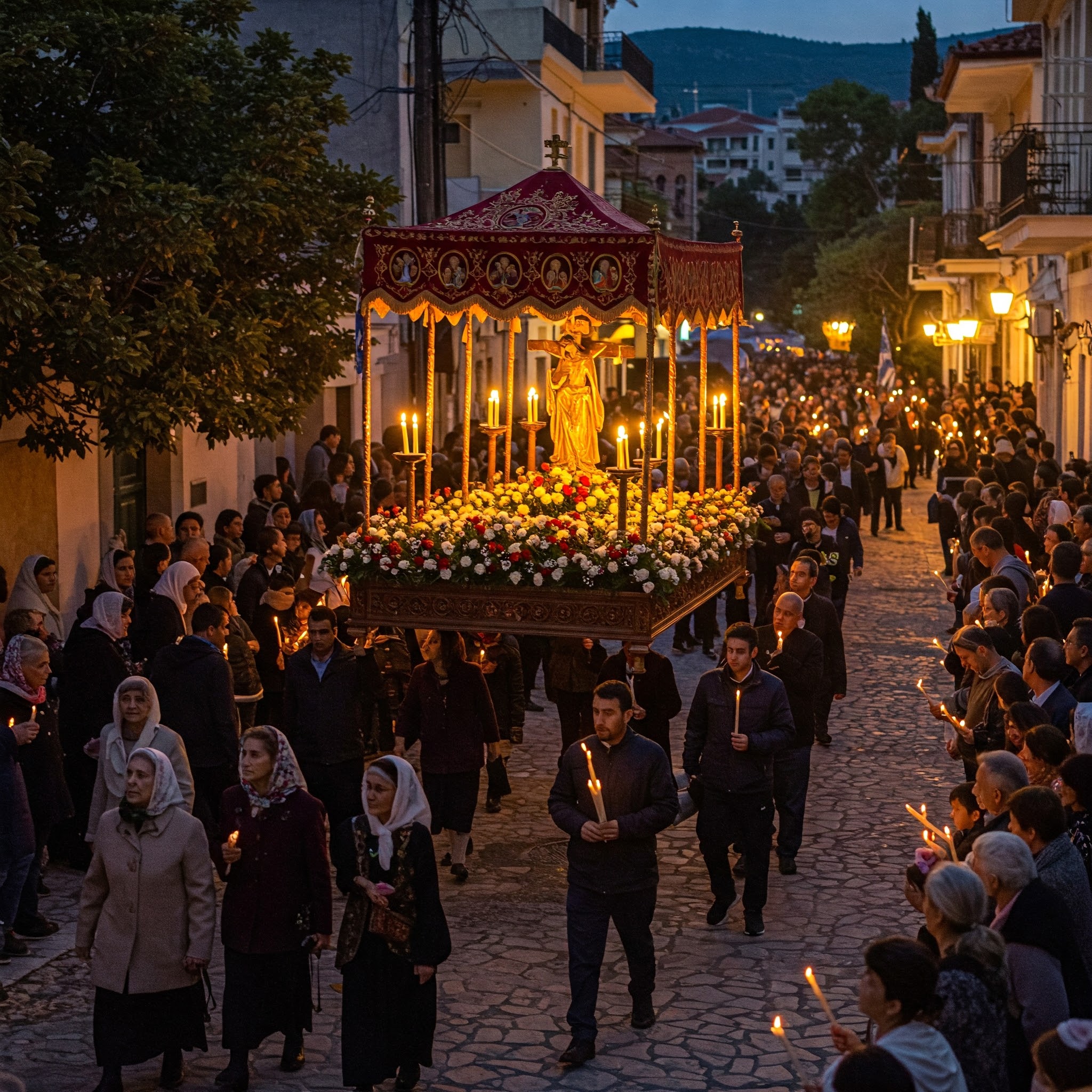
holy saturday ( megalo savvato)
The real magic happens late on Saturday night. People go to church wearing their best clothes and holding candles. Just before midnight, the priest comes out from the church with the Holy Flame and says loudly, “Christos Anesti!” (Χριστός Ανέστη! – Christ is Risen!). People pass the flame from their candle to the next person’s, and soon the whole church is filled with the warm light of candles.
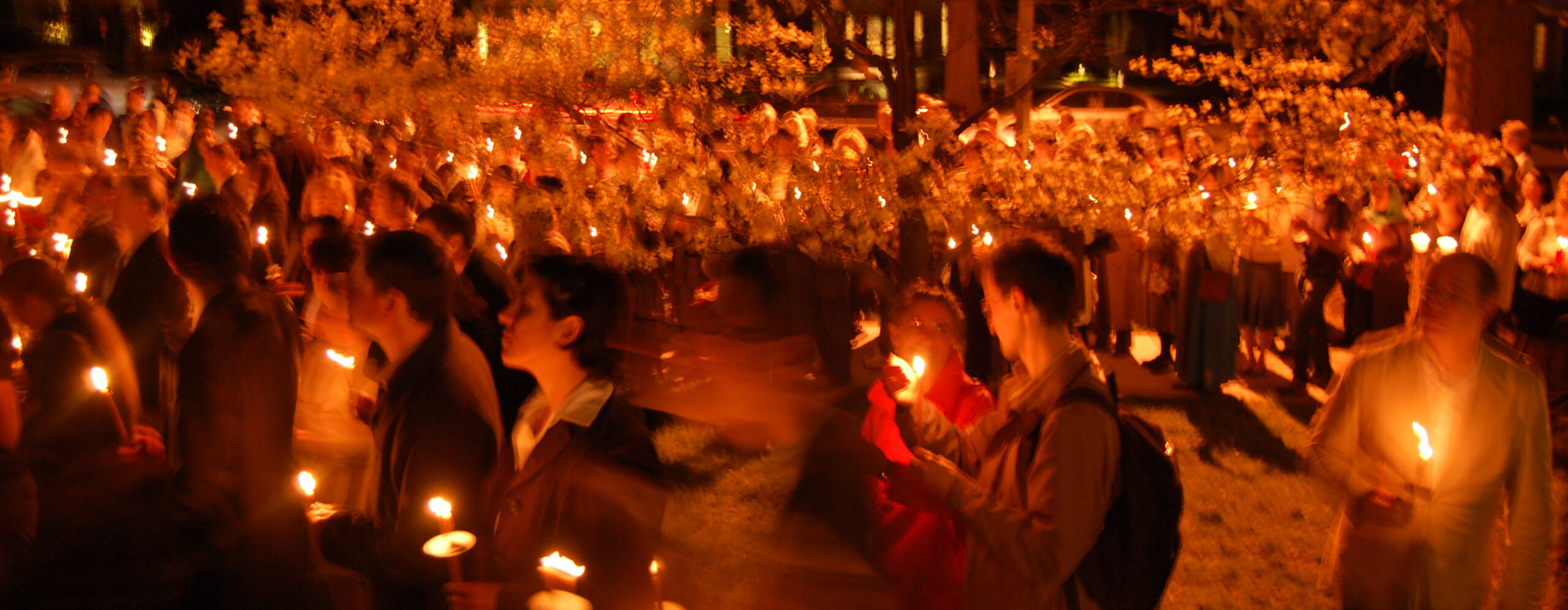
When people go home with their lit candles, they’re very careful not to let the flame go out. They often use the smoke from the flame to make a cross above their front door to bring good luck. Then, they have a midnight meal. The traditional food is magiritsa (μαγειρίτσα), a rich soup made with lamb parts, green vegetables, and herbs. This soup breaks the long time of Lent.
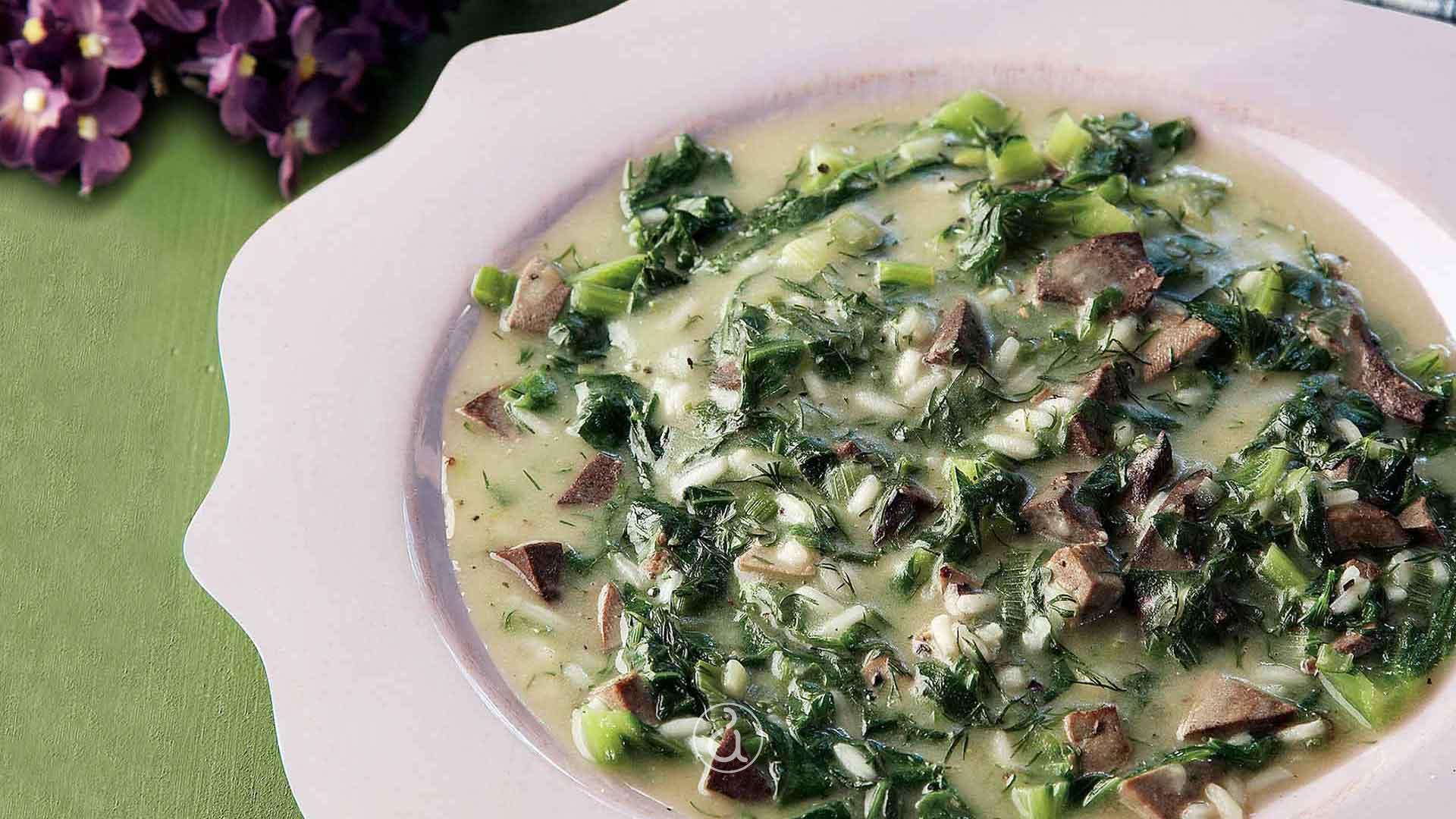
They also crack the red eggs against each other. The person whose egg doesn’t break is said to have good luck all year.
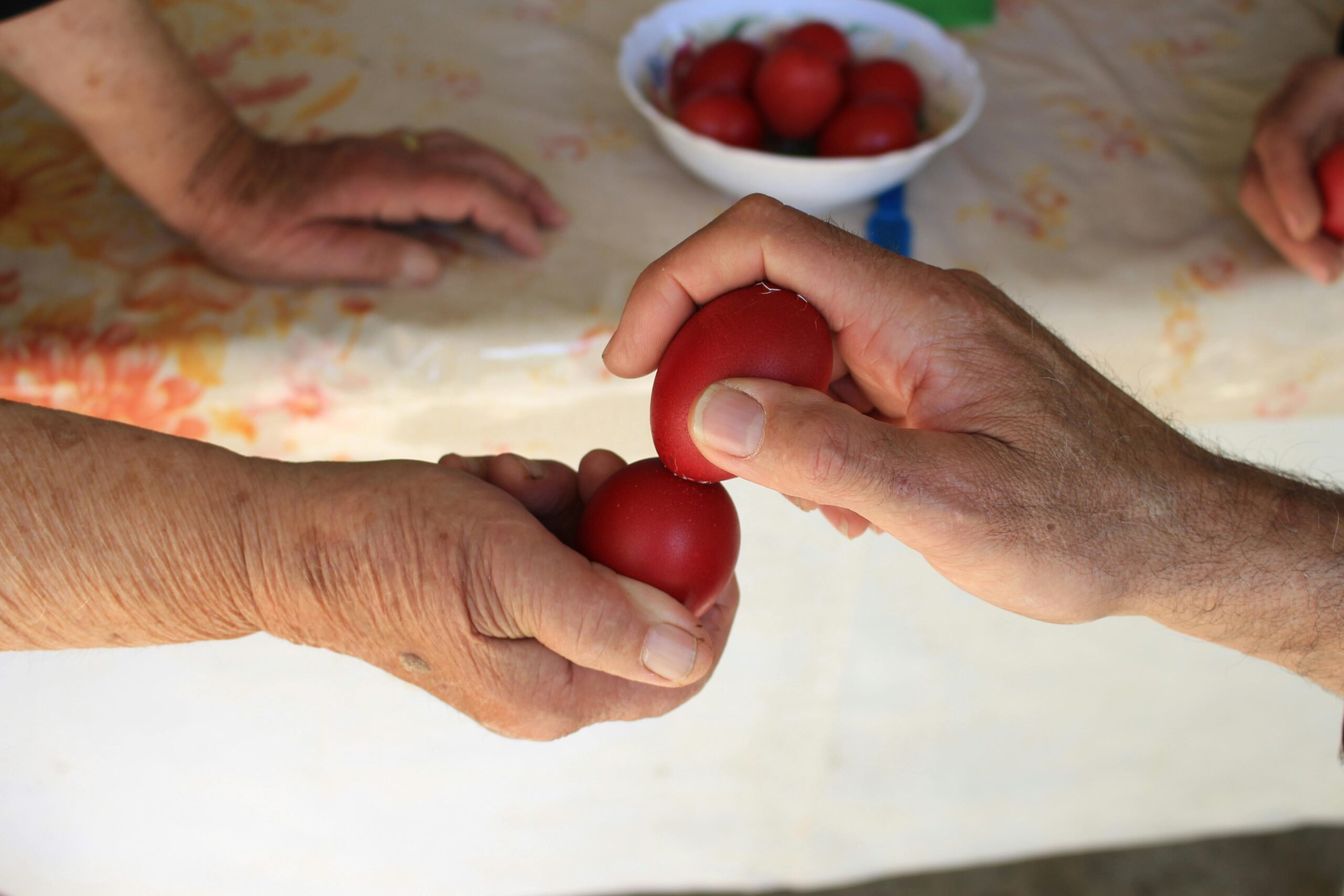
Easter Sunday (Kyriaki tou Pascha)
A day of pure happiness and lots of food. The main part of the day is cooking a whole lamb or baby goat on a long stick called a souvla (σούβλα). The smell of the roasting meat makes everyone hungry and happy to get together. Families and friends spend the day eating, listening to music, dancing, and having lots of fun. The tables are full of delicious food, like roasted meat, traditional pies, salads, and sweet treats like tsoureki (τσουρέκι), which is an Easter sweet bread. People keep saying “Christos Anesti!” and others reply “Alithos Anesti!” (Αληθώς Ανέστη! – Truly He is Risen!) all day long.
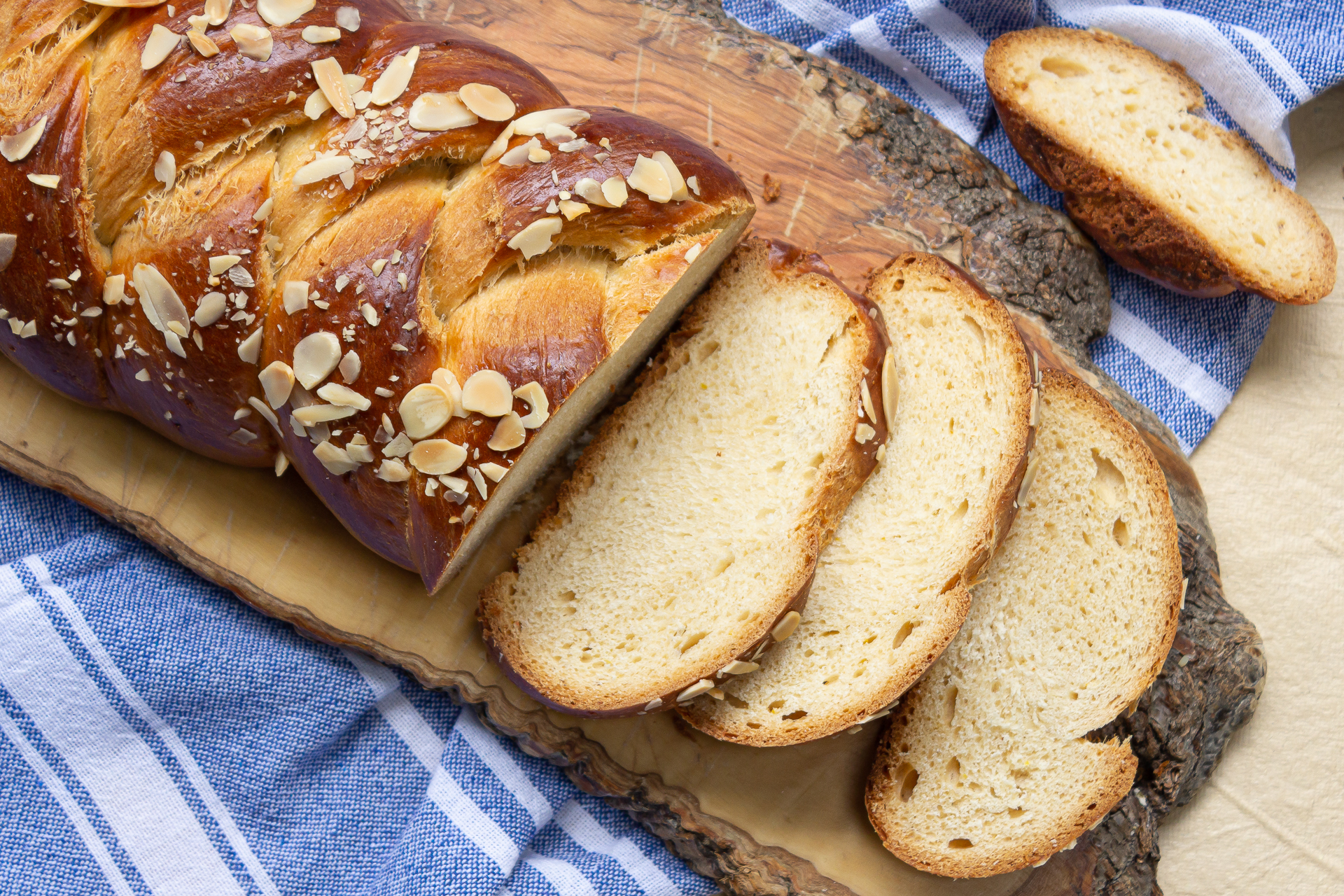
vocabulary:
Easter: Pascha (Πάσχα)
Holy Week: Megali Evdomada (Μεγάλη Εβδομάδα)
Last Supper: Mystikos Deipnos (Μυστικός Δείπνος)
Resurrection: Anastasi (Ανάσταση)
Christ is Risen!: Christos Anesti! (Χριστός Ανέστη!)
Truly He is Risen!: Alithos Anesti! (Αληθώς Ανέστη!)
Blessing: Evlogia (Ευλογία)
Prayer: Prosefchi (Προσευχή)
Holy Flame: Agio Fos (Άγιο Φως)
Bay Leaves: Dafnofylla (Δαφνόφυλλα)
Candle: Keri (Κερί)
Church Bells: Kambanes (Καμπάνες Εκκλησίας)
Red: Kokkinos (Κόκκινος)
Eggs: Avga (Αυγά)
Lamb: Arni (Αρνί)
Goat: Katsiki (Κατσίκι)
Spit (for roasting): Souvla (Σούβλα)
So, if you can, come and see the magic of Greek Easter. Feel the serious mood of Holy Week, the exciting happiness of the Resurrection, and the friendly warmth of Greek people as they celebrate the victory of life. Christos Anesti!
But before you go to celebrate your own Pascha check out one of our related videos:
Aaaand don’t forget if you truly want to start mastering Greek in style, we recommend starting with our Greek Crash Course.
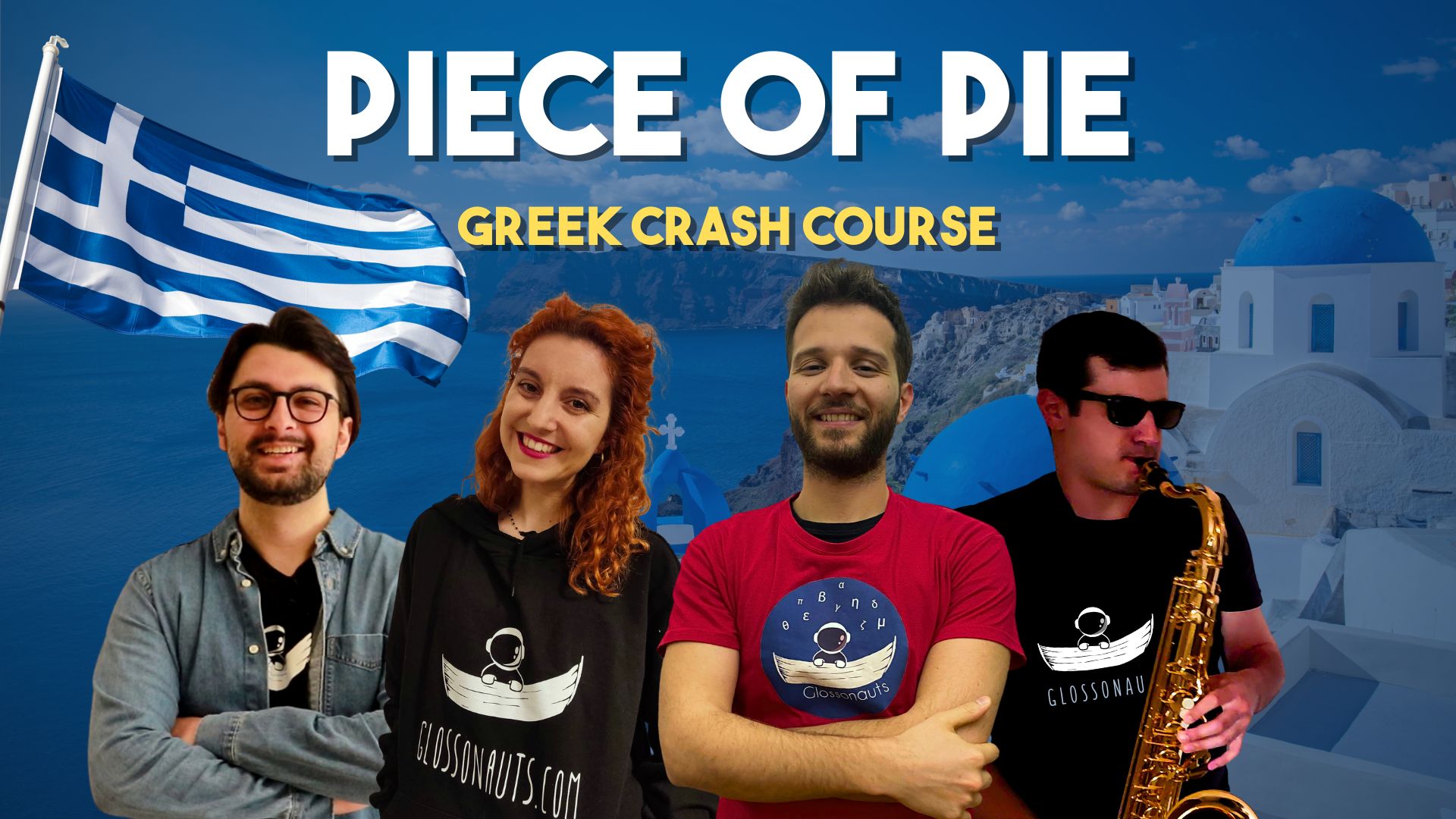
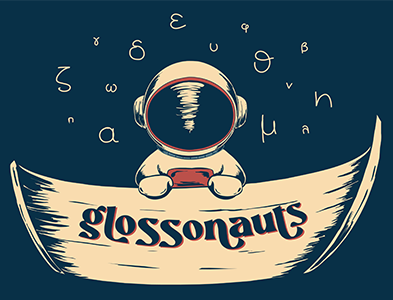
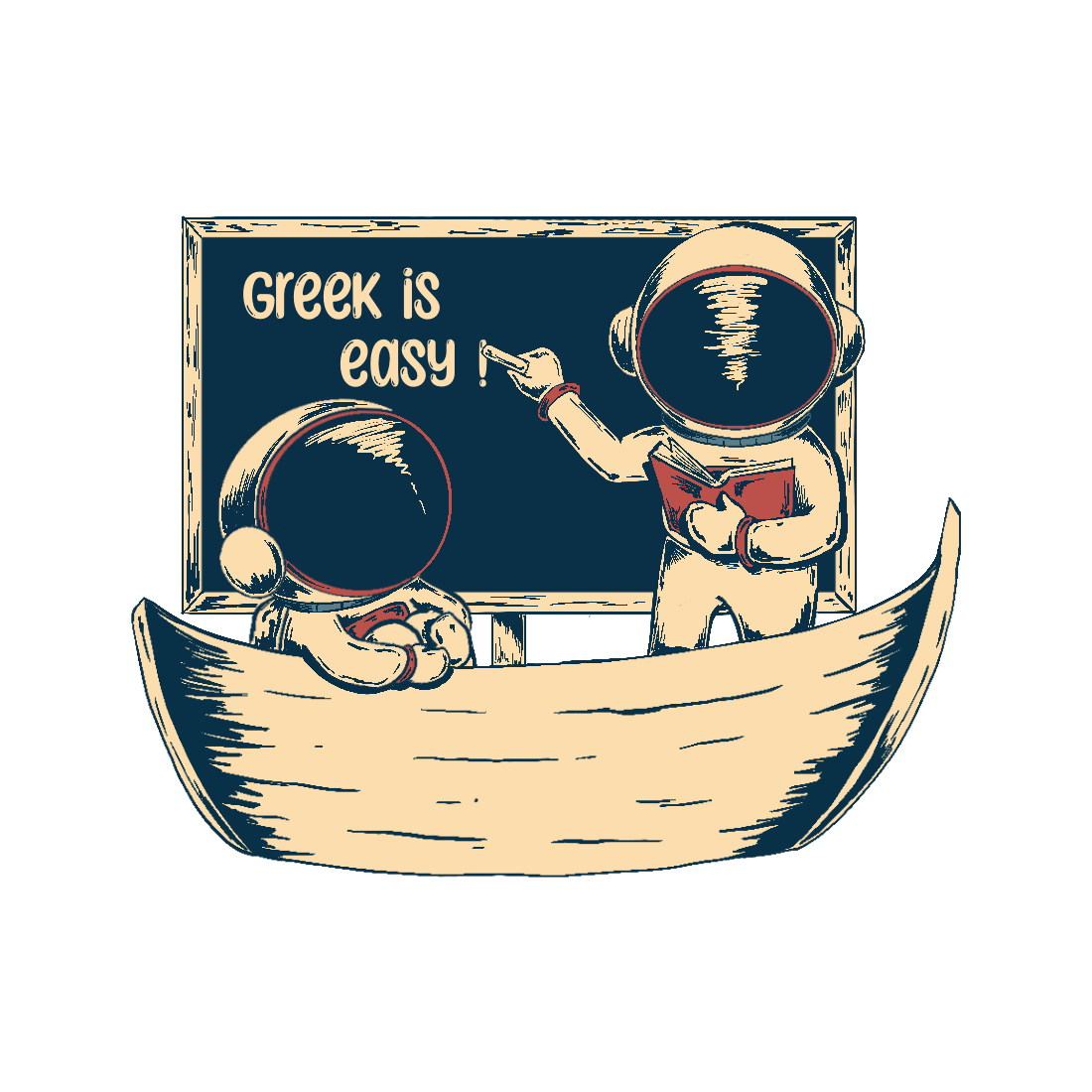


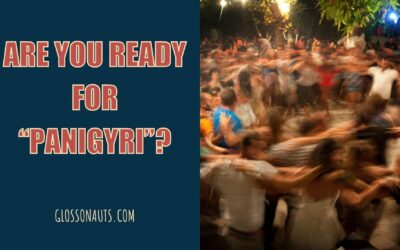
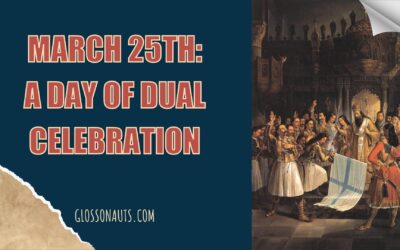
0 Comments